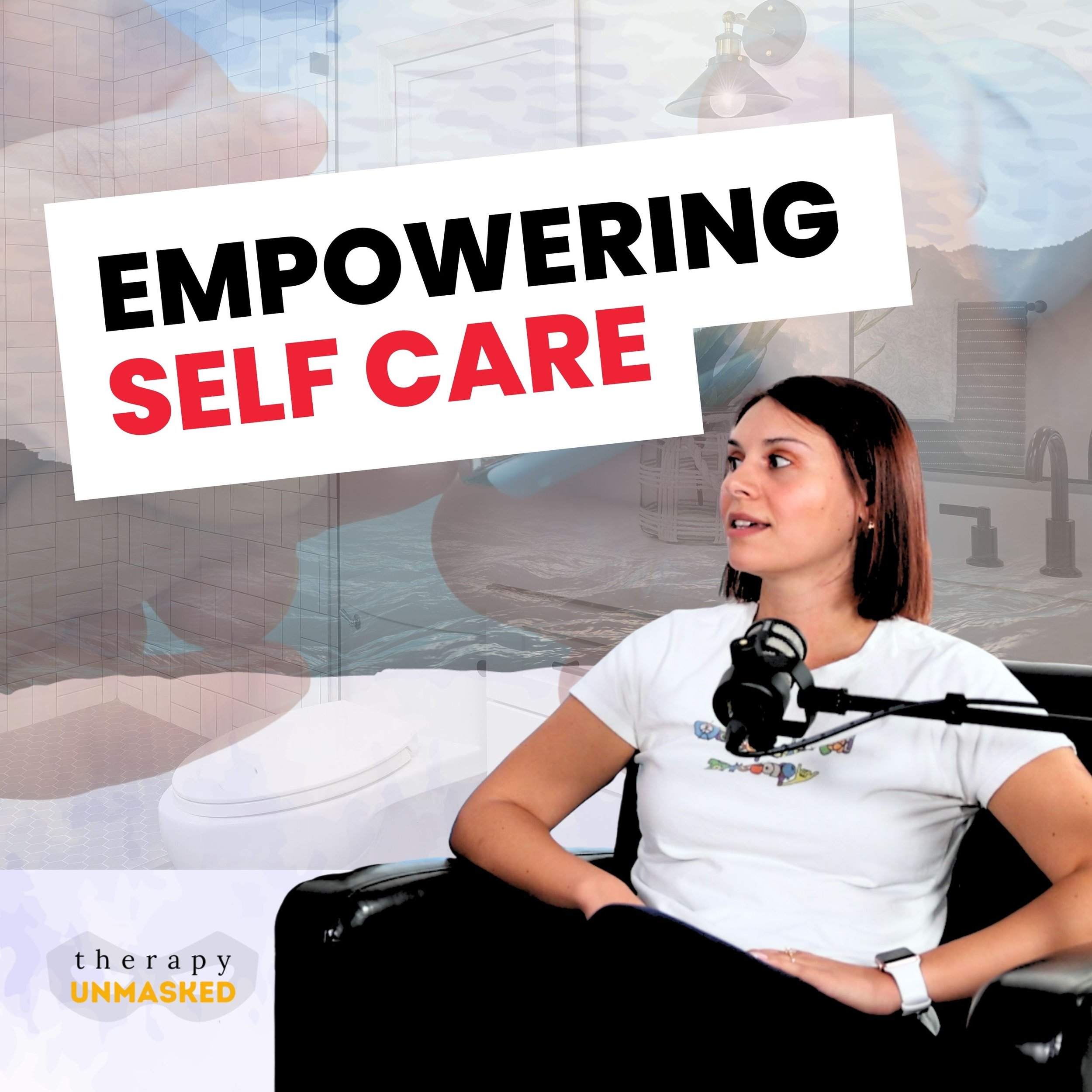
🧩 7 Signs It’s Time for an Occupational Therapy Evaluation
As parents, we all want our children to feel confident, capable, and happy in their everyday routines — whether that’s getting dressed, writing their name, or making friends on the playground. But sometimes, certain skills don’t come as easily as we expect. That’s where occupational therapy (OT) can help.

Core Strengthening for Kids: Simple, Play-Based Exercises for Better Posture
Good core strength is one of the most important foundations for your child’s success in school, at home, and during play. As a pediatric occupational therapist, I often see children who struggle with handwriting, self-feeding, attention, and coordination. Many of these challenges trace back to the same place: the core.

Emotion & Body Coding: A Clinical yet Spirit, Body, Mind Pathway to Healing for Kids and Adults
In today’s fast-paced world, more families are seeking effective ways to support emotional wellness, reduce stress, and reconnect with a sense of inner balance. One method bridging the gap between clinical understanding and spiritual healing is Emotion Code® and Body Code®, created by holistic physician and chiropractor Dr. Bradley Nelson.
This system is transforming the way children and adults release stored emotional energy, improve emotional regulation, and support whole-body wellness, and can help achieve goals.

Why Parent Participation & Follow-Through Are the Keys to Success in Pediatric OT, PT, and Speech Therapy
When a child receives occupational, physical, or speech therapy, the goal is always the same: to help them build the skills they need to thrive in everyday life. Therapists play an essential role in assessment, treatment planning, and skill-building—but the progress a child makes during weekly sessions is only one piece of the puzzle. The biggest gains often happen between appointments, and that’s where parents and caregivers make all the difference.
Below is a look at why parent involvement matters so much, what it really looks like day-to-day, and how you can support your child’s therapy journey for the best possible outcomes.

Boredom For The Brain
Boredom fuels creativity and imagination. When the brain isn’t being fed constant stimulation, it naturally starts wandering inward. This “default mode network” (the brain’s daydreaming system) begins making loose, playful, unexpected connections—exactly the kind that fuel creativity. Children often generate their most imaginative play after they’ve moved through that uncomfortable “I’m bored” stage. It strengthens problem-solving skills. Boredom creates a kind of mental “itch” to do something meaningful or engaging. That discomfort nudges the brain to invent new ideas, seek new solutions, or explore new activities. It’s essentially a catalyst that pushes us to figure things out ourselves.

Understanding Primitive Reflex Integration
Primitive reflexes originate in the brainstem and are present before birth. They help newborns adjust to life outside the womb by supporting early movement, sensory development, and neural growth.

Education, Sensory Processing, & Children In Motion: A Deep Dive With OT Rhonda Roth
The world of occupational therapy (OT) is vast and dynamic, but at its heart lies a singular goal: empowering individuals to live life to the fullest. On a recent episode of the Therapy Unmasked podcast, we sat down with the incredible Rhonda Roth, an occupational therapist and educator whose career perfectly embodies this principle.
Rhonda's story is a compelling journey through diverse clinical settings—from acute care and skilled nursing to schools—before she found her true calling in pediatric Sensory Integration. The conversation wasn't just a look back; it was a powerful masterclass in clinical philosophy and the future of the OT profession.

Stop Chewing on Shirts! Understanding and Addressing Oral Sensory Needs in Kids
If your child constantly chews on their shirt collars, sleeves, pencils, or even toys, you’re not alone! Many parents worry about this habit—wondering if it’s behavioral, anxiety-related, or just a phase. In pediatric occupational therapy, we often see children who chew as a way to meet an oral sensory need—their body’s way of seeking calming or organizing input through the mouth.

Are You Worried About Dysgraphia?
Dysgraphia is a neurological condition that affects a child’s ability to write legibly and make it readable. It basically impacts handwriting, spelling, and organizing thoughts on paper, often making writing tasks more challenging than their peers, despite normal intelligence and adequate instruction. Common signs include illegible handwriting, inconsistent letter formation, floating letters, spacing issues, difficulty with grammar and punctuation, and/or slow writing speed. It may also involve trouble with fine motor skills needed for writing, like the grasp on a pencil, small movements of the hand while writing, and eye-hand coordination.

Is Picky Eating A Problem?
Picky eating can be a normal part of childhood, but it becomes a problem when it leads to nutritional deficiencies, developmental delays, or emotional distress. If a child consistently avoids essential food groups, there is a risk of not receiving adequate vitamins, minerals, and other nutrients necessary for growth and overall well-being. In more severe cases, picky eating can lead to conditions like malnutrition or failure to thrive. Long-term avoidance of certain foods can result in gastrointestinal issues, fatigue, and weakened immunity. Picky eating can also be linked to psychological conditions such as anxiety, OCD, or eating disorders like ARFID. If picky eating is causing significant distress or impacting overall health, it's essential to seek professional help. Signs that it might be time to seek help include noticeable weight loss, chronic fatigue, growth delays, or frequent gastrointestinal problems. Emotional signs such as anxiety around meals, extreme fussiness, or feeling overwhelmed by the prospect of trying new foods are also important to note.

The Power of Two: How Co-Treatments Can Transform Your Child's Therapy
At Ability Innovations, our goal is to be interdisciplinary. We believe that by working together, we can provide better care and achieve greater success for the children we work with. According to Nick and Megan, co-treating offers several key benefits:
Better Outcomes: When two therapists from different specialties work together, a child often makes greater progress in both areas. The therapists can build on each other's work and augment the benefits of each session. For example, an OT might work on a child's core strength on a swing, while the SLP uses that regulated state to encourage communication and language skills.
Efficiency for Parents: Co-treating can significantly shorten the time a family has to spend at the clinic. Instead of attending two separate appointments, you can get two therapies in one session. This is a huge time-saver for busy families.
Holistic Care: Therapy isn't just about one specific skill; it's about helping a child function better in the world. By combining two disciplines, therapists can address multiple goals at once. Megan shared a great example of a scavenger hunt she did with an OT. While the child was working on fine motor skills and handwriting with the OT, Megan had them practice and write words that targeted their speech sounds.

Sensory Avoidance Vs. Sensory Seeking
In the world of occupational therapy, sensory processing plays a vital role in helping individuals navigate their daily lives. Two common sensory patterns—sensory avoidance and sensory seeking—represent opposite ends of the sensory spectrum. Sensory avoidance refers to individuals who are overwhelmed or distressed by certain sensory input, such as bright lights, loud noises, or specific textures. These individuals often withdraw from stimuli, preferring quiet, calm environments. In contrast, sensory seekers actively crave sensory input and may engage in behaviors like touching everything around them, making loud noises, or constantly moving.

Bedtime Strategies To Help My Child Wind Down
If you're a parent of a child who receives pediatric occupational therapy, chances are you've seen how sensory needs, emotional regulation challenges, or developmental differences can affect your child’s sleep. Bedtime can become a battleground—or a never-ending routine of delays, restlessness, and midnight wake-ups. The good news? There are strategies that can help. Occupational therapy often addresses not only daytime functioning but also nighttime routines, because sleep is foundational to your child's development, behavior, and overall well-being.
Here are some OT strategies you can try to help your child wind down and stay asleep:

Empowering Self-Care: Occupational Therapy Tips for Neurodivergent Kids

Picky Eating, Sensory Aversion, or Something More? Understanding ARFID

How to Help Kids Handle Frustration in the Moment: Using Coping Strategies When They Matter Most

The Power of Presence: Understanding the Therapeutic Use of Self in Therapy

Climbing Rocks And Beyond

Cooking with a Purpose: How to Include Kids in Meal Prep to Support Feeding Therapy


